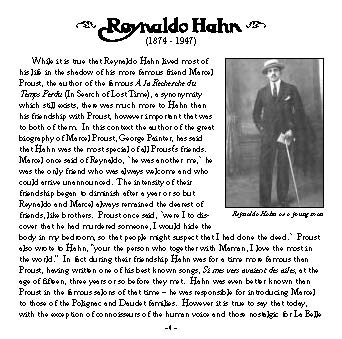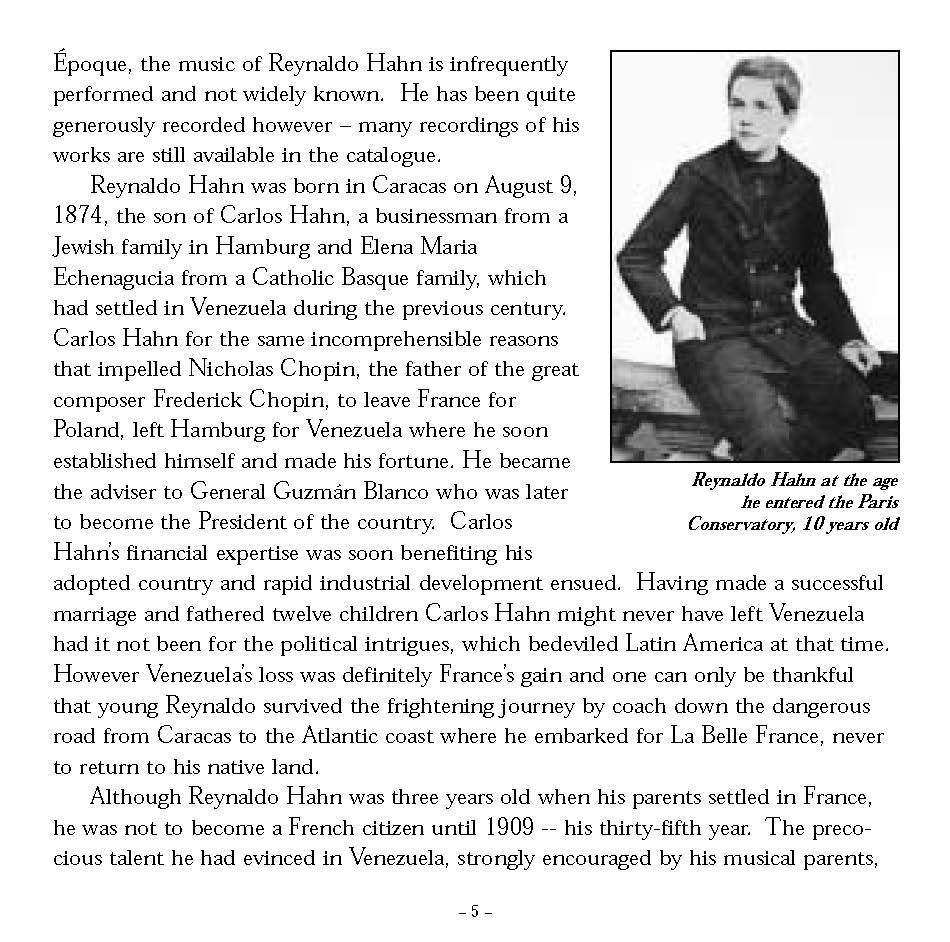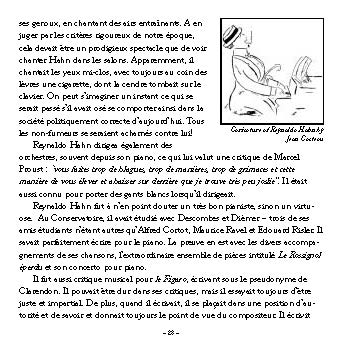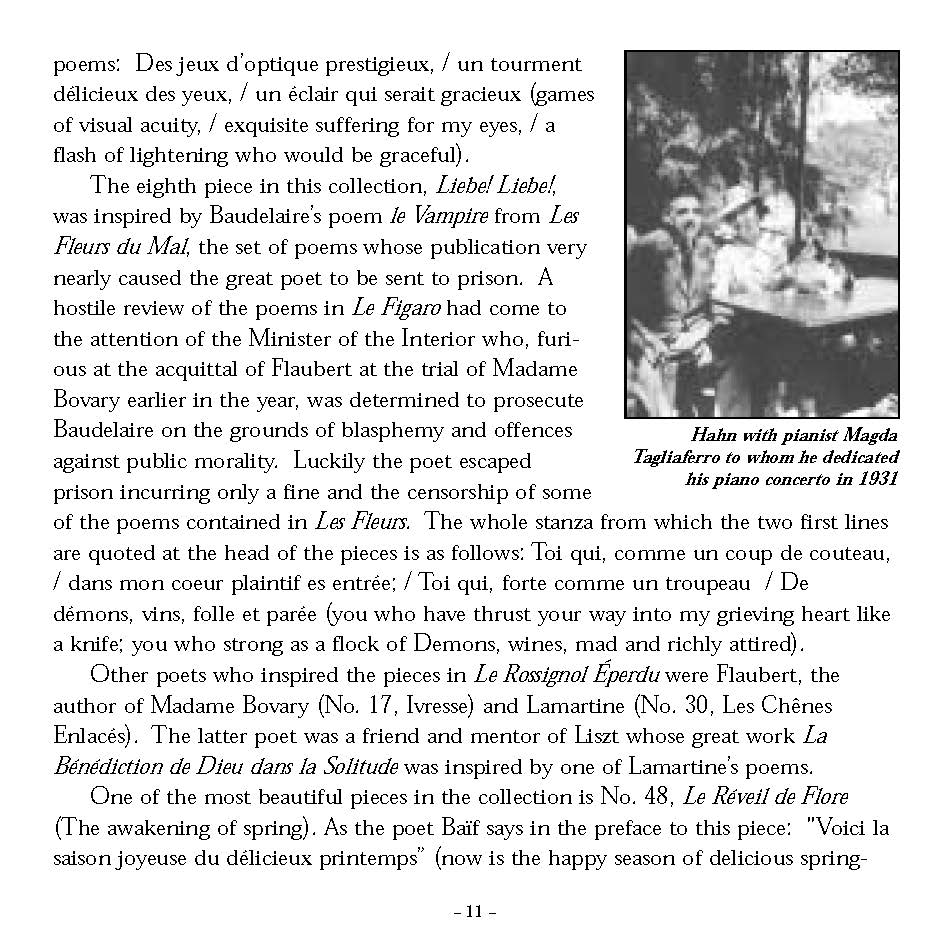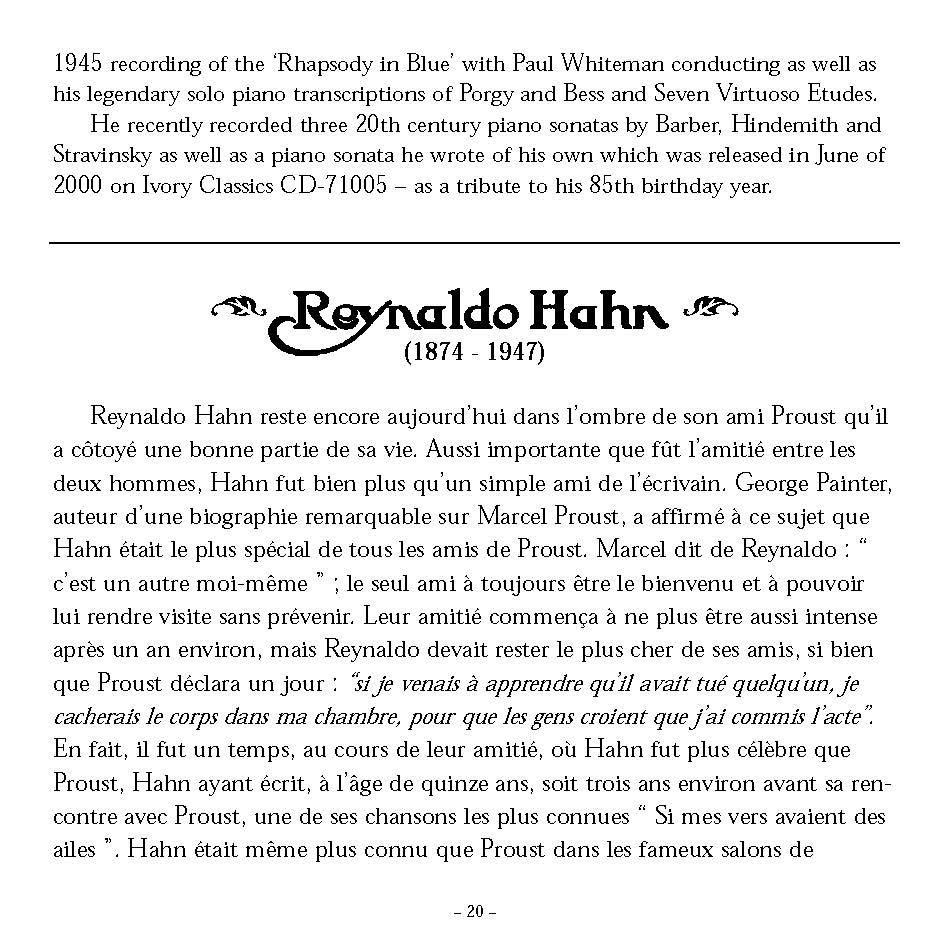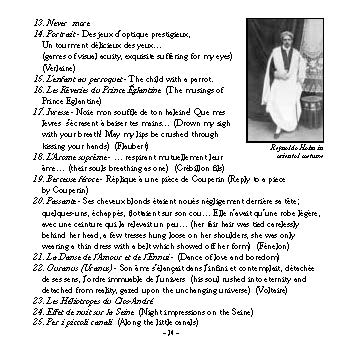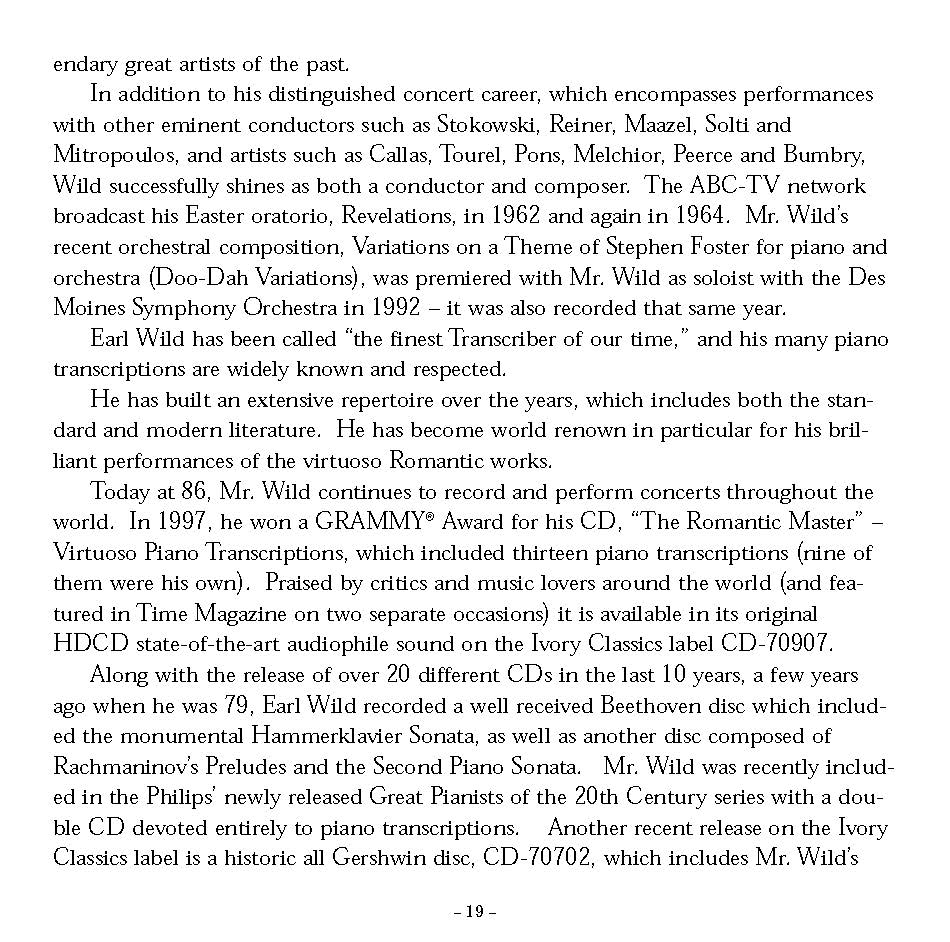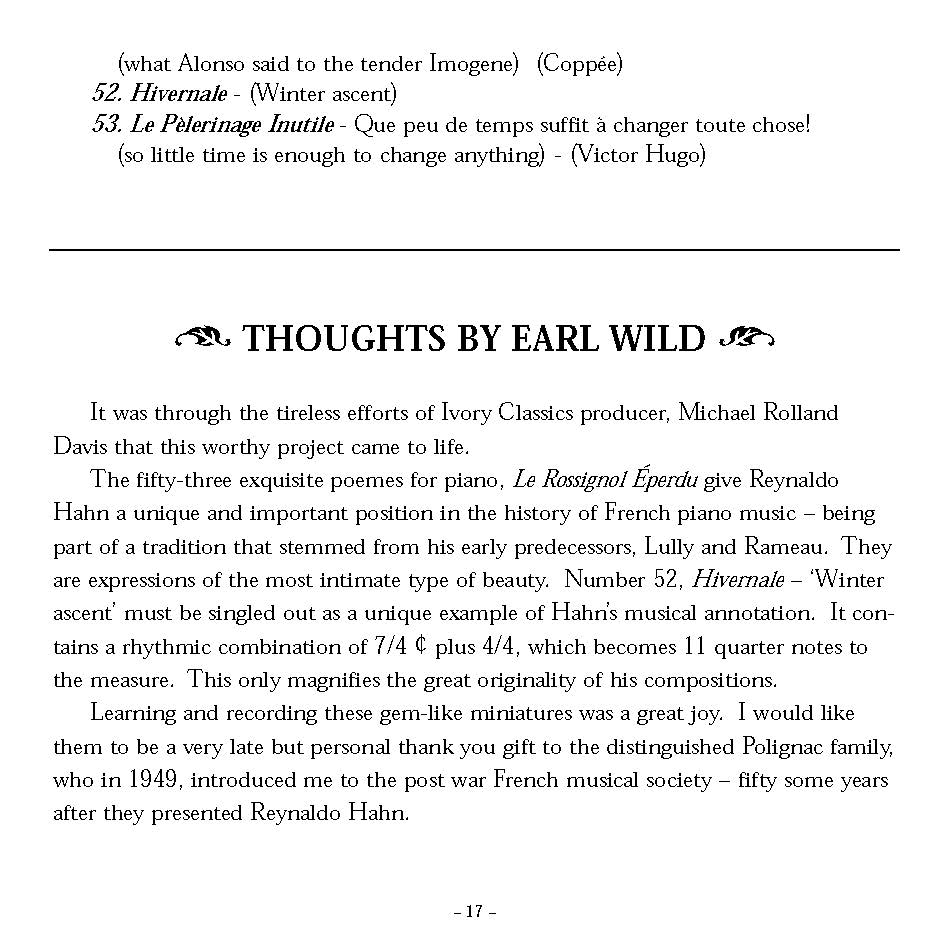Earl Wild: Reynaldo Hahn - Le Rossignol Eperdu 53 pieces (CDr available only)
Earl Wild: Reynaldo Hahn - Le Rossignol Eperdu 53 pieces (CDr available only)
Couldn't load pickup availability
Ivory Classics CD-72006(2CDs)
Earl Wild: Reynaldo Hahn - Le Rossignol Eperdu
Reynaldo Hahn (1874-1947)
Piano: Earl Wild
Producer: Michael Rolland Davis
Engineer: Ed Thompson
Piano Technician: Edd Kolakowski
Recorded at Fernleaf Abbey, Columbus, Ohio
April 30th - May 5th, 2001
Piano: Baldwin
Liner Notes & Translations: Lord Londonderry
This disc has been recorded using state-of-the-art original 24-bit HDCD encoding.
French composer Reynaldo Hahn wrote very few solo piano compositions. This world première two disc recording performed here by the GRAMMY®Award - winning pianist Earl Wild, includes the very rare collection of 53 solo piano compositions entitled, Le Rossignol Éperdu(The Bewildered Nightingale). Recorded here in its entirety for the first time, these fifty-three delightful poèmes for piano were composed between 1899 and 1911. Each of these little gems are inspired by great poets such as; Verlaine, Molière, Baudelaire and Hugo among others. The Le Rossignol Éperduconsists of four suites; I. Premiere, II. Orient, III. Carnet de Voyage and IV. Versailles. This extraordinary group of miniatures reflects varying impressions, sketches and thoughts during Reynaldo Hahn's countless travels. This music is played with passionate Belle Époque elegance by the Romantic Master himself, Earl Wild. Liner notes are both in English and French.
Disc.Reviews
Hahn's six pieces devoted to the Orient, with their exotic reflections of Debussy and Satie, are perhaps the most remarkable, but not one of the 53 pieces fails to give delight. Earl Wild's old-gold tones, quietly eloquent phrase-shaping's and absolute rhythmic control are displayed to admiration. Highly recommended.
BBC Music Magazine, Jul. 2002
If ever there were a composer whose music exemplified charm, it was Reynaldo Hahn (1874-1947). A celebrated baritone, vocal coach, music critic, sometime pianist and bon vivant, Hahn was nothing if not a renaissance man. Born in Caracas to a wealthy German industrialist and a Venezuelan mother, he grew up in Paris. He had already become the toast of Parisian society when in 1892 he befriended Marcel Proust, who immortalized him as the poetic genius of his novel Jean Santeuil.
Best known for his operas, vocal and incidental music, Hahn penned La Rossignol Eperdu (The Ecstatic Nightingale) as a cycle of 53 piano pieces. Each is inspired by a poem by Flaubert, Moliere, Voltaire, Baudelaire, Hugo, Goethe, Musset or Verlaine. Hahn's compositional vocabulary brings to mind Richard Strauss for its textural transparency and darting rhythms; Mompou for its air of faded decadence; and also Griffes and Faure, for its quiescent and migratory harmonies.
To these brief, wistful and often nostalgic works Earl Wild, now 86, brings the kind of abundant detail and extraordinary pianistic finesse that can only be the envy of his colleagues.
Wild's performances are exquisite in every category -- technical, interpretive and aesthetic. He deftly manipulates the gentle hemorrhage of one voice into the next, imperceptibly emerging from a phrase or cadence as if it were the breaking of the dawn.
A disembodied quality has crept into Wild's playing of late, as if he has moved into the realm of pure concept. And yet there is nothing in the least dispassionate or coolly abstract about any of it. He invests virtually every phrase with incomparable elegance and authority. A-plus
John Bell Young, St. Petersburg Times, Jun. 2002
Like his far better-known songs, Reynaldo Hahn's 53 'poems for piano' in 'La Rossignol Eperdu' are exquisite gems - clear, concise sophisticated, lovely and modest...In this first complete recording, Wild, at 85, shows no loss of power, insight or ease of technique.
Los Angeles Times, Jun. 2002
"To these brief, wistful and often nostalgic works Earl Wild, now 86, brings abundant detail and extraordinary pianistic finess that can only be the envy of his colleagues. Wild's performances are exquisite in every category - technical, interpretive and aesthetic. He deftly manipulates the gentle hemorrhage of one voice into the next, imperceptibly as if it were the breaking of the dawn. A disembodied quality has crept into Wild's playing of late, as if he has moved into the realm of pure concept. And yet there is nothing in the least dispassionate or coolly abstract about any of it. He invests virtually every phrase with incomparable elegance and authority. A+"
John Bell Young, St. Petersburg Times, Jun. 2002
The remarkable, Grammy award winning Earl Wild gives masterful performances of works for solo piano by French composer Reynaldo Hahn. This world premiere two disc recording includes his rare collection of 53 compositions entitled, Le Rossignol Eperdu (The Bewildered Nightingale). Recorded here in its entirety for the first time, these charming poemes for piano were composed between 1899 and 1911. Each was inspired by great poets such as Verlaine, Moliere, Baudelaire and Hugo. The Le Rossignol Eperdu consists of four suites: Premiere, Orient, Carnet de Voyage and Versailles. This extraordinary group of miniatures reflects varying impressions, sketches and thoughts during Reynaldo Hahn's countless travels and the music is played here with suitably passionate Belle Epoque elegance. 'Wild's performances are exquisite in every category - technical, interpretive and aesthetic' - St. Petersburg Times. 'Not to be missed'
American Record Guide, Mar. 2002
As Alastair Londonderry writes in the booklet accompanying this set, the title Le rossignol eperdu is 'a bit of a teaser'. Eperdu can mean distraught, bewildered, frantic or even ecstatic: 'perhaps this nightingale is all of these things'. The set, recorded here in its entirety for the first time, comprises 53 pieces, divided into four groups. Hahn worked on the sequence between 1899 and 1910, although it seems unlikely that he originally envisaged it as such a long work.
Although he was only 30 in 1904, Hahn had already known an enormous amount of success, and also the disappointment of the lukewarm reception accorded to his first two operas (L'ile du reve and La Carmelite). He seems to have undergone something of an emotional crisis in 1900, and there is a sense that these very private pieces are a sort of diary. Each one carries a quotation from a poet, or a subtitle, the very first being: 'Penche un peu ton oreille a cet oiseau qui pleure: c'est moi!' ('Listen a little to this bird that weeps: it is me!'). Later there is 'Liebe!, Liebe!' with the quotation from Baudelaire, 'Toi qui, comme un coup de couteau, dans mon coeur plaintif es entree' ('You who have thrust your way into my grieving heart like a knife').
The first suite is the longest, with 30 pieces, ranging from 'Gretchen' ('Heureuse a faire mal au coeur') which culminates in a passionate, dissonant coda that is surprising from Hahn, to much more typical songs without words: 'Soleil d'automne' and 'Les reveries du Prince Eglantine' that recall his melodies. 'Per i piccoli canali' is a near-cousin of 'La barcheta' from Chants Venetiens, while 'La danse de l'amour et du danger' is a sinister-sounding waltz. By 1910 Hahn had started a new career as a composer of ballets: La fete chez Therese was a huge success at L'Opera and led to a commission from Diaghilev. This turned out to be an oriental fantasy, to a libretto by Cocteau, Le dieu bleu, and the second suite of Le rossignol is called 'Orient'. This is the shortest -- six pieces -- but also the most experimental, drawing on muezzin-like lines. 'Carnet de voyage' is a sequence evoking various works of art, dancing fauns, a Christmas scene, a stained-glass angel at Bourges. There is no way of telling in what order the pieces were composed, but I would guess that these are the earliest, having a sort of juvenile simplicity, although 'Les noces du Duc de Joyeuse' has a definite echo of Le bal de Beatrice d'Este, composed in 1905.
The final group is of eight pieces depicting Versailles. 'Le banc songeur' ('The bench dreamer') makes one think of one of Hahn's diary entries in his published journals (Notes d'un musicien; 1933). He visits Versailles and writes, 'Et puis, j'ai longuement pense a Marcel, a son isolement'. Although Hahn's passionate involvement with Marcel Proust had been in the 1890s, the two remained close friends throughout this period, even as Proust became more and more of a recluse. Is it just a coincidence that Proust's novel is A la recherche du temps perdu and that Reynaldo's bird is eperdu? The Versailles pieces reflect Hahn's then-unusual interest in seventeenth-century music, but the very last, 'Le pelerinage inutile', ends so abruptly that I wonder again if he really intended that the whole sequence should be played in one go.
Earl Wild, at the age of 86, attacks the often-challenging writing with the vigour of a 20-year-old. In his note in the booklet, Wild singles out the penultimate 'Hivernale' with its 'rhythmic combination of 7/4 plus 4/4, which becomes 11 quarter notes to measure'. The only previous recording of any of Le rossignol eperdu was by Catherine Joly. She took a more Romantic approach, where Wild's playing, with its superb clarity and precision, seems much more Classical. This is one of the most important Hahn recordings ever made, clearly a must for any devotee, but even the uninitiated might be taken by surprise.
International Record Review, Dec. 2001
"You'd think that at 86 Earl Wild would have surveyed all of the forgotten Romantic piano literature that's worth reviving. Not quite, folks! Here's an absolutely exquisite cycle of '53 poèmes pour piano' by Reynaldo Hahn, collectively titled Le Rossignol Éperdu (The Distraught Nightingale). Synthesize early Scriabin preludes, the sparse lyricism of late Liszt, Fauré's subtle harmonic palette, the delicate balance of Mompou's piano miniatures, plus Massenet's melodic fluidity, and you've got the gist of Hahn's attractive if modestly deployed keyboard writing. The pieces range from 30 seconds to eight minutes and draw inspiration from literary and artistic images, but you don't need to know that in order to simply enjoy them as pure music. Under Earl Wild's seasoned but spirited fingers, each piece seemingly unfolds by itself with no trace of interpretive baggage. The full, somewhat dry engineering conveys an intimate drawing room ambiance that suits this project well. Add Lord Londonderry's fascinating annotations, and you'll wonder where these treasures have been hiding before Wild took up their cause. I only hesitate to call this important release 'the crown jewel of Earl Wild's recorded legacy' because you never know what this eternally youthful pianist has in store for us next!"
Classics Today, Dec. 2001
"It's good to have Hahn's Le Rossignol Eperdu, a collection of 52 miniatures (only a handful are over 3 minutes) available in sympathetic performances recorded at age 86 by the master of the Romantic piano, Earl Wild. Wild is known for his virtuosity and poetry, and these salon pieces stress the latter quality in his playing. He captures the simple, unaffected charm of the works, sometimes sounding as if he's improvising on the keyboard - an important reason why he's such a successful interpreter. Wild also succeeds in creating the intimate atmosphere they require, as well as the classic simplicity that links them to the French piano tradition. Warm sound and playing complete the picture."
Amazon.com, Dec. 2001





